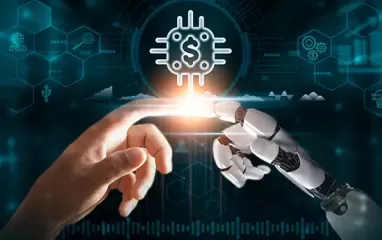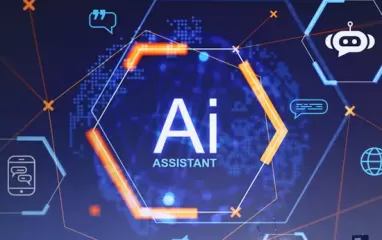Other recent blogs



Let's talk
Reach out, we'd love to hear from you!
Once upon a time, answering a complex question from a vast database felt like a difficult task. So, there was Retrieval Augmented Generation(RAG), a revolutionary approach that let our AI assistants help find the precise information needed for the response. But traditional RAG still had a blind spot. It can struggle with truly intricate queries- the ones that require not just finding a fact but reasoning and executing a multi-step investigation. This is the new frontier where agentic retrieval techniques take the stage. It can break down a complex case, decide which leads to follow, and dynamically choose the right tools for each part of the enquiry.
In a world where data systems are becoming the bedrock of every decision, this ability to navigate complexity with precision and intelligence is not just an improvement but the next great leap forward in reliable information retrieval.
What is RAG, and what are the existing challenges with RAG
RAG is retrieval augmented generation. Imagine giving the large language model an open-book test. That’s what RAG does. It’s an architectural approach that enhances AI’s ability to answer questions by connecting it to external knowledge bases. Instead of relying solely on its pre-trained data, a RAG system first retrieves relevant information and then uses it to generate more accurate fact-based responses. This is why AI can now leverage your company’s internal documents and chatlogs to provide answers, making it a powerful tool for internal search and as a customer support chatbot.
While a game-changer, basic RAG has a weakness as it struggles with information overload. Companies usually assume that more data equals better answers, but that’s not always true. When AI is connected to multiple data sources like sales records, emails, and various databases, it has a problem prioritizing things. It’s like having a library with millions of books but not a librarian; the system might pull in outdated information from an email instead of the latest information from CRM. This lack of a smart retrieval strategy leads to unreliable results, highlighting the need for a more intelligent and context-aware approach.
The rise of agentic RAG: A new era for data engineering
While basic RAG struggles with a lot of information, Agentic retrieval techniques introduce a powerful new element called “reasoner,” which acts as a strategic planner. Rather than just plain fetching data, this agent analyzes the user’s intent, the context, and the identity of the person asking. It then creates a plan to retrieve the most relevant and reliable information. For example, when a salesperson asks about a recent deal, the agentic reasoner prioritizes dynamic sources like chat messages or a real-time CRM dashboard over older, static documents. This context-aware approach ensures the system not only finds data but also retrieves the right data, leading to more accurate and trustworthy responses, even in the most complex scenarios. This is the core of agentic AI for data engineering.
What is agentic RAG, and how is it different from traditional RAG?
Traditional RAG systems operate reactively, with a strict reliance on predefined queries and explicit human instructions for each step of the retrieval process. Functioning as static information retrieval tools, these are limited to retrieving data based solely on a specific query input. This restricts their adaptability and problem-solving capabilities, as they lack the ability to infer context, or there is not much deviation from a narrow set of inputs.
This is akin to navigating a library with a precise list of book titles—the system provides no assistance beyond fulfilling your exact request.
On the other hand, what is agentic RAG? It follows a more proactive approach. It is designed for autonomy and continuously analyzes human intent to automatically retrieve information from a wide range of sources, including dynamic data streams and external APIs. This proactive, self-guided approach allows them to generate comprehensive and contextually rich responses with minimal human intervention. This is a key difference in agentic retrieval techniques.
Talking about the library analogy, agentic RAG is equivalent to having an assistant that not only identifies the most suitable resources but also makes it ready into an insightful report, so efficiency is increased multifold.
How agentic retrieval techniques work
Agentic RAG transforms information retrieval from a simple search-and-fetch operation into an intelligent, multi-step investigation. Rather than relying on a single, static process, it deploys a team of specialized AI agents, each with a specific role in solving a query. This is the difference between a lone librarian and a full research team.
Here’s the step-by-step process on how these agents collaborate:
- Query Analysis: The journey begins with a deep dive. AI agents meticulously analyze the user's question, breaking down complex queries into manageable sub-tasks and identifying the underlying intent and context.
- Strategy Development: Based on this analysis, the agents formulate a dynamic plan. They determine which data sources to consult, the optimal order for retrieval, and which specialized tools will yield the best results.
- Coordinated Retrieval: The agents then execute this plan, working in tandem across various data sources. They adapt their approach on the fly, learning and adjusting based on the information they discover in real-time.
- Information Validation: Before generating a response, the agents act as fact-checkers. They cross-referenced the retrieved data and then validate information to ensure consistency and completeness.
- Response Generation: Finally, the system synthesizes all the validated information into a coherent, comprehensive response that directly addresses the user’s needs.
Benefits of agentic AI - RAG integration
The AI agents market is projected to skyrocket from $7.84 billion in 2025 to $52.62 billion by 2030. Integrating this technology with RAG Retrieval Augmented Generation creates a new class of AI that delivers two core advantages:
- Real-time, Contextual Decision-Making Agentic RAG systems don’t just retrieve data; they act on live, dynamic information. By continuously evaluating the quality and relevance of retrieved data—from traffic updates to evolving user needs—they adjust their workflows in real time.
Example: An autonomous car using Agentic RAG can instantly fetch real-time traffic data on accidents or road closures from external sources. The agent then immediately adapts its route, ensuring safe and efficient travel. - Advanced, Multi-step Reasoning Agentic RAG excels at breaking down complex, multi-layered queries into manageable sub-tasks. It can refine its understanding, ask clarifying questions, and synthesize information from multiple sources to produce more reliable and nuanced answers.
Example: A legal assistant's complex query is broken down into sub-questions. The agent routes each sub-query to relevant databases, such as recent court filings and internal legal documents. The results are then synthesized into a comprehensive, contextually rich answer. - Iterative Feedback Loop—Agentic RAG systems continuously refine their output through iterative feedback loops. They identify gaps in their responses and adjust their reasoning until a satisfactory answer is found. This process not only enhances accuracy but also enables the system to learn from past outcomes, making it way smarter than basic RAG.
Example: In customer service, an agentic RAG system can evaluate a chatbot’s initial response. If it detects inconsistencies, it automatically retrieves additional information from internal and external sources. This cycle is continued until a high-quality response is delivered.
Applications of agentic RAG: Transforming key industries
The power of Agentic RAG extends across diverse sectors, transforming how we interact with information and automate tasks.
- Customer Support: Beyond simple information retrieval, Agentic RAG empowers autonomous agents to provide proactive, context-aware support. For a customer with a delayed order, the agent can not only provide shipping details but also proactively offer a discount or expedited shipping, learning from past interactions to continuously improve service and personalization.
- Healthcare: Agentic RAG has the potential to enhance clinical decision-making. By synthesizing the latest medical research and patient history, it can provide clinicians with tailored, evidence-based recommendations. This can improve diagnostic accuracy, identify potential drug interactions, and serve as a powerful tool for continuous medical education.
- Financial Services: Agentic RAG can be used to provide personalized financial advice and manage complex portfolios. By analyzing real-time market data, economic reports, and individual client risk profiles, an agent can offer customized investment recommendations, highlight potential risks, and automate portfolio rebalancing to align with changing market conditions.
- Education: In a classroom setting, Agentic RAG-powered tutoring systems can offer truly personalized learning. By dynamically retrieving and presenting content based on a student's individual understanding and learning style, these systems can optimize learning outcomes and provide a dynamic, adaptive educational experience.
- Business Intelligence (BI): Agentic RAG streamlines the creation of business reports by automating the retrieval and analysis of KPIs from diverse sources. This frees up analysts from countless hours of manual work, allowing them to focus on interpreting insights, spotting emerging trends, and formulating strategic recommendations to help the business stay ahead.
Conclusion
Agentic RAG represents a powerful new paradigm at the intersection of AI and information retrieval. It combines the proactive, autonomous capabilities of agentic systems with the dynamic data retrieval and synthesis of RAG retrieval augmented generation. This fusion creates a new class of intelligent agents that can reason, plan, and execute complex tasks with minimal human intervention. Over the coming years, we will likely see a fundamental shift in how AI is utilized. The focus is moving away from tools that merely assist humans to sophisticated systems that can act, adapt, and deliver comprehensive, meaningful results independently. This evolution is set to transform workflows across every industry, making AI a true partner in problem-solving.



